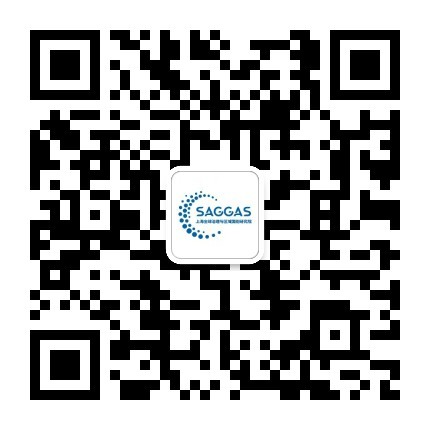The closing ceremony of the 61st Munich Security Conference was held in Munich, Germany on February 16. The participants stood up and warmly applauded for a long time to bid farewell to Heusgen, who will no longer serve as chairman of the Munich Security Conference after the end of this session, and welcomed the new Chairman and former NATO Secretary General Stoltenberg. The Munich Security Conference not only witnessed the replacement of new and old leaders, but also witnessed the drastic transformation of EU-US relations, the increasing variables in the global security landscape, and the difficult start of European security autonomy. Therefore, it was given profound historical significance.
First, this MSC meeting focuses on current global security focus issues and provides a platform for leaders and professionals from various countries to discuss global security challenges and promote exchanges, dialogue and cooperation. The discussions mainly covered current focus areas and areas of global security, such as the Russia-Ukraine conflict, transatlantic relations, the new security situation in Asia, the new international order, new characteristics of the drastic evolution of international relations, artificial intelligence and climate change, education and security relations, etc. On the other hand, China's security policy concepts, propositions and roles in a changing world are generally highly valued by all parties participating in the meeting. During the meeting, a number of special sessions involving China issues were set up. To put it figuratively, the Munich Security Conference is like a big supermarket for international issues. It is very lively and efficient, and all parties can get what they need here.
Second, contradictions in US-European relations have become the focus. In his speech at the the Munich Security Conference, U.S. Vice President Vance criticized Europe for democratic retrogression and emphasized that the biggest threat facing Europe comes from within rather than from the outside. This remark shocked European representatives attending the meeting. Vance also directly intervened in the upcoming German election, advocating that traditional German political parties should not set up a firewall against the choice party, exclude the choice party from the possibility of participating in the government, and respect the will of voters. This statement aroused strong dissatisfaction from European and German representatives. The German Defense Minister said on the spot that such interference was unacceptable. A senior EU official also expressed disappointment that Vance should not treat allies this way. Current German Chancellor Scholz and Merz, the candidate for chancellor of the largest opposition Christian Democratic Union, refuted Vance's remarks. Many scholars at the scene believed that Vance's speech was a historical turning point in US-European relations. Differences in values are shaking the foundation for maintaining the transatlantic relationship between Europe and the United States, and will have a profound impact on relations in science and technology, economy, trade, defense and other fields. In addition, while in Munich, Vance also met with Alternative for Germany Chairman Weidel and directly stepped in to support Choice Party. This move further shocked the German media and political circles and triggered strong criticism that the United States should not interfere in Germany's internal affairs. After Vance's speech, Germany and Europe quickly formed a targeted unified statement. For example, Europe still adheres to the transatlantic alliance, but European affairs should be decided by the Europeans themselves. The United States should respect Ukraine and Ukraine should respect Europe as Europe respects the United States. The resolution of the Russia-Ukraine conflict must involve Ukraine and Europe, and any relevant decisions unilaterally made by the United States and Russia must not be accepted. Europe and Ukraine must be at the negotiating table, not on the menu. This shows that Europe can quickly show unity in its discourse.
Third, Europe has shown a strong desire for strategic autonomy, but the path to break the situation is not yet clear. Vance's speech to a certain extent enhanced Europe's sense of autonomy and reduced its reliance on external security, especially the United States. European leaders have expressed one after another that Europe needs to further integrate internal resources, deepen cooperation in politics, economy, trade, defense and other fields, and jointly respond to external challenges. However, European countries are also clearly aware that differences in national systems have severely limited Europe's overall ability to act. Both the French and German defense ministers pointed out that Europe still cannot do without the support of the United States in undertaking its own security and defense, especially in participating in providing security guarantees for Ukraine. At this Munich Security Conference, although Europe announced many principles and positions, it has not yet proposed specific strategies and plans. The Danish Prime Minister and others called on Europe to talk less, do more and do faster. The candidate for chancellor of the German CDU also stressed that security issues cannot be solved by simply increasing their own investment by European countries, and institutional reforms are still needed to achieve concerted European action. Germany and France, the locomotives of European affairs, as well as the Weimar Triangle(France, Germany, Poland), which plays an important role in European affairs, did not make a clear and unified voice at this meeting, which reflects Europe's leadership. There are still shortcomings, and a leaderless Europe may face many difficulties in achieving strategic autonomy. According to reports, European leaders will hold an emergency meeting in Paris on Monday local time to agree on Europe's position on resolving the Russia-Ukraine conflict in response to the serious incident of direct negotiations between Russia and the United States crossing Europe and Ukraine.
At present, China-EU relations are further deepening, and Europe has new expectations for China. As the international situation becomes increasingly complex, especially the drastic changes in relations between Europe and the United States, all parties pay close attention to the concepts and specific actions of China's foreign policy. During the meeting, Foreign Minister Wang Yi met with many European dignitaries, including the current German Chancellor, Foreign Minister, and the European Union's High Representative for Foreign Affairs and Security Policy. He also had extensive exchanges with the German CDU Chairman and Chancellor candidate Merz, which was widely praised. International relations are complex and changeable, and mutual strategic understanding and positioning among countries are of very important strategic significance. In his keynote speech, Foreign Minister Wang Yi elaborated on China's firm position of being a constructive force in a changing world, emphasizing that all countries should treat each other as equals, respect the international rule of law, practice multilateralism, and adhere to open and win-win cooperation. Many Europeans present at the meeting commented that Foreign Minister Wang Yi's speech was completely different from US Vice President Vance's remarks of teaching Europe a lesson and demonstrated the spirit of respect, responsibility and safeguarding international rules. At a time when European and American relations may encounter profound adjustments, Europe should reassess its policies towards China. China-EU relations are expected to usher in new development opportunities. We hope that policymakers from both sides can focus on bilateral interests and common responsibilities for global governance, and proactively negotiate, plan and shape China-EU relations.
Author: Jiang Feng Researche Professor at Shanghai International Studies University, Chairman of Council of the Shanghai Academy of Global Governance and Area Studies.
Source: Global Times, February 18, 2025.
Translated and reviewed by Chen Xinran with AI translator




